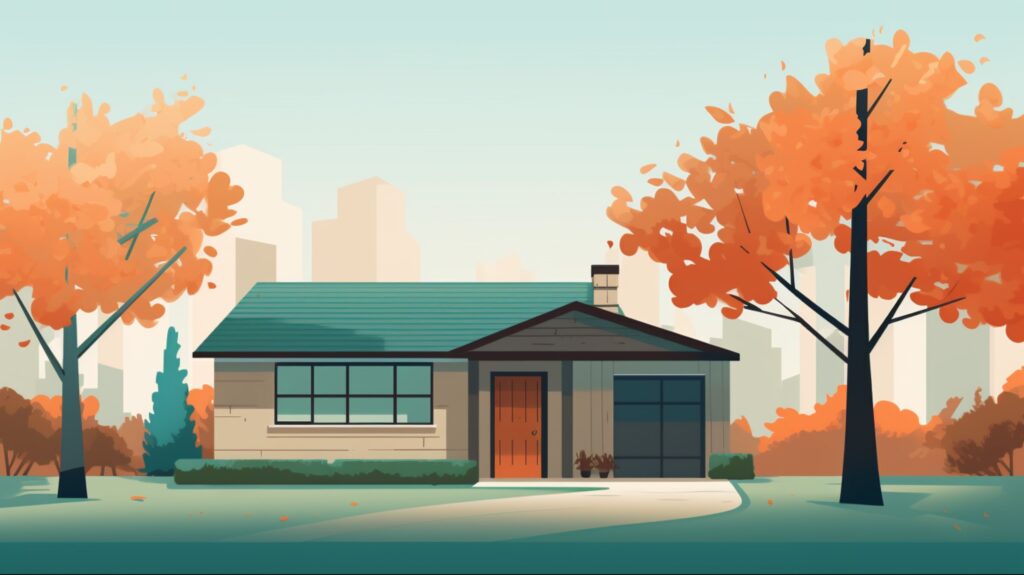
We are reader-supported. When you buy through links on our site, we may earn an affiliate commission.
If you’re not familiar with the process of buying a home, researching anything about real estate could leave you overwhelmed. An important factor in buying a home is figuring out how much house you can afford. More goes into the type of house you can afford than just your paycheck. Something seemingly small can make or break whether you qualify for a particular loan or whether a lender will see you as a risk or a good investment.
What Can Change How Much I Can Afford?
Once you believe you can afford a home, you can’t consider yourself permanently able to afford it. Different factors can fluctuate and change how much home you can afford, both in the long and short term.
You should aim to optimize all of these factors to make yourself look like a more competitive buyer. If lenders see you as less of a risk, they’ll be more willing to spend their money to help you afford a home you love. Similarly, you’ll feel less strain on your wallet from higher interest rates and feel less stress and pressure to dip into your savings to pay your home loan off.
1. Debt-to-Income Ratio
To get the best deal, you want a lower debt-to-income ratio. Simply put, the percentage that results from dividing your potential monthly mortgage payment by your monthly income before taxes is your debt-to-income ratio. While it might sound complicated, it’s easy to get a number and see why a higher debt-to-income percentage could make you look like more of a risk to investors.
If you want to lower your debt-to-income ratio before continuing your home search, you should prioritize paying down the debts that you can. Aim for high-interest debts first so you can get them out of the way. “Good” debts look better than “bad” debts, so opting to pay off a credit card might make a better impression than pushing yourself to pay off your student loans first instead.
2. Your Credit Score
In 2019, the average credit score was around 703 for many Americans, both working and retired. For most loan types, you’ll need a credit score of about 620 or higher, but a credit score above 740 will give you the lowest interest rates.
Having a higher credit score can benefit you when searching for a home. Lenders might consider you more trustworthy, so you might be able to get by with a higher debt-to-income ratio. Credit scores matter in many parts of life, not just home buying, so it’s in your best interest to build it up and maintain a healthy score.
3. Larger Down Payment
With a larger down payment, you’ll be offering more money for the home upfront. The more money you offer as a down payment, the less you will have to pay off your home in the future. Offering a larger down payment is ideal if you can afford it because lenders will see you as less of a risk because they’ll have less of their money on the line.
You should make sure you’re not causing yourself to go broke by offering a higher down payment. You shouldn’t drain your savings in an attempt to make yourself appear less of a risk to lenders.
4. Loan Refinancing
Refinancing your loans after you close on a home can adjust your mortgage rates to something much more affordable, mainly if the market has changed a great deal since you first bought the house. By refinancing your loans, you can cut chunks off your monthly payments, making your home potentially more affordable for you, especially if you’re worried about changes in the future, like a career switch or a new baby.
While loan refinancing isn’t something you can do right off the bat before you get the keys to your home, it’s still an option that can help you change how much you must pay when something has changed. If something changes how much house you can afford, refinancing your loans is the best way to cut your monthly mortgage costs.
5. Employment Status
If you are an hourly employee, particularly if your hours change from week to week, lenders view you as more of a liability. As a general rule, lenders love workers who are full-time, salaried, and have a set schedule.
Even if you’re an hourly worker who makes the same amount as a salaried worker, you may have a more challenging time finding a lender to take you seriously. This favor may be because salaried workers with traditional working hours might appear more stable, even if hourly workers work the same number of hours as their more conventional counterparts. Similarly, if you’ve gotten a raise or a promotion, your lender may not take that into account, even if it’s a guarantee.
Which Loans Can Help Me Afford a Home?
Adopting the conventional home loan requires a 20% down payment. While this type of loan is common, you have other options, particularly if you’re a first-time homebuyer or a veteran. These two types of loans are some of the most well-known and popular assistance-based loans, though you might find more if you dig deep enough.
1. Federal Housing Administration (FHA) Loan
FHA loans are known for their smaller down payments. With a minimum down payment of 3.5%, this loan is an excellent option for people who want to buy their first home but aren’t sure if they could afford the usual 20% down payment.
You might qualify for this loan if you are a first-time homebuyer and have a lower credit score. This loan also works for multiple-unit properties, so often, people who are interested in real estate investment will use an FHA loan to gain their first deal because it means spending less money upfront for a down payment.
2. VA Home Loan
This loan is military-exclusive, meaning that if you or your spouse has served in the military, you have a great benefit that you can take advantage of for life. Some of the most notable parts of this loan include that it doesn’t require any sort of down payment and limits closing costs to be more accessible to all veterans and their families. This loan also boasts lower interest rates, making it an excellent option for you if you qualify for it.
How Much House Can I Afford Right Now?
Plenty of factors go into what kind of house you can afford. It’s perfectly normal to have questions like “How much house can I afford,” primarily if you’re not used to the market and have never bought a home before.
You should aim to keep your mortgage payment below 33% of your total monthly income, just in case something happens. Remember to keep building up your emergency fund in the meantime in preparation for a month that you might be out of work in the future. Your emergency fund can help you stay afloat when payments seem impossible.
If you’ve got your eyes on a more expensive house, don’t give up hope. Boost your credit score and save up more for a larger down payment, and you might be able to buy the home of your dreams in the near future.










